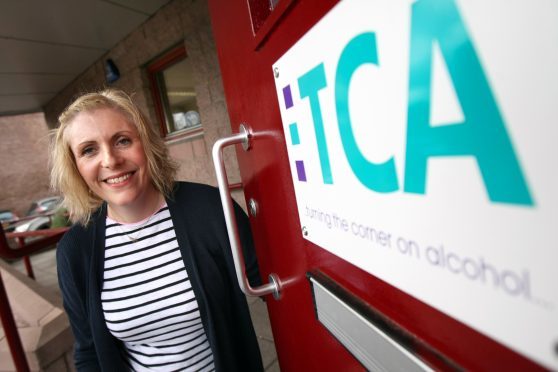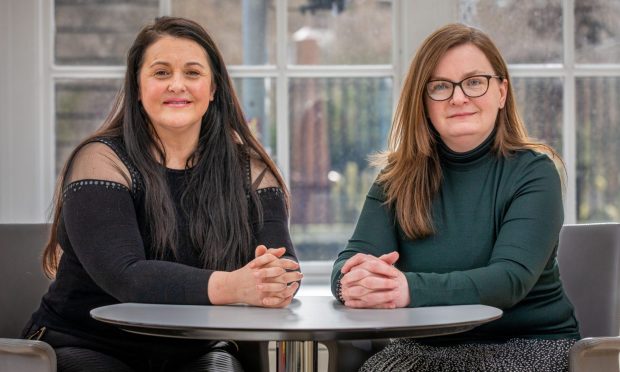The head of Tayside Council on Alcohol said Scotland suffers the “worst of both worlds” when it comes to its relationship with drink.
Karthryn Baker said traditionally, Scots drank excessively at weekends while their southern European counterparts drank less, but more often.
She said Scots have become accustomed to drinking through the week and then binge drinking on weekends.
Ms Baker was speaking after figures released by NHS Tayside revealed the huge toll alcohol abuse it taking on people’s health.
Between 2012/13 and 2016/17 236 people died of the disease, an average of almost one death per week.
Additionally, there were 1,748 discharged with a diagnosis of alcoholic liver disease during that period.
Tayside has one of the highest rates of alcoholic liver disease in Scotland. In 2015 there were 14 deaths per 100,000 people.
Greater Glasgow had the highest rate with 19.1 deaths per 100,000 people. The lowest rate was in the Borders with just 7.1 deaths per 100,000 people.
Ms Baker said: “I don’t think the figures are a shock, they reflect a trend we’ve seen over the past few years where alcoholic liver disease is being presented in younger and younger individuals.
“If you look back 20 or 30 years ago, it was not something you would see in people in their 30s, 40s or 50s, it tended to be older adults.”
Ms Baker said alcohol has become more affordable and drinking habits have changed.
“If you rewind 50 years drinking was something that was done at weekends whereas some of our neighbours in southern Europe would drink on a more regular basis but not to the level of intoxication.
“Now we’ve got the worst of both worlds where we have adopted having a glass of wine before a meal and a bottle of wine with dinner, then binge drinking at the weekend.”
Ms Baker said tackling Scotland’s relationship with alcohol will require a cultural shift but that, as demonstrated with smoking, such a fundamental change in attitudes is possible and that the introduction of minimum pricing for alcohol may be key to achieving this.
“We have seen a massive culture shift with smoking,” she said.
“It will have to be partly driven by legislation and we do need investment to help change people’s mindset and their attitudes to alcohol .
“A lot of preventative work is with children and young people but they often get their messages on alcohol from their families.”
A spokesperson for NHS Tayside said: “Individuals who drink too much risk short-term harm such as alcohol poisoning and becoming a victim of an accident, violence or crime.
“In the longer term, the risks of continuing to drink too much include dependence, mental health problems, high blood pressure, heart disease, stroke, liver disease and various cancers.
“The three Alcohol and Drug Partnerships (ADPs) across Tayside commission a range of specialist services for those experiencing and seeking help for alcohol problems, including counselling, alcohol detoxification in the community or as an inpatient, to manage alcohol dependence and prevent further harm
“Furthermore, ADPs work to educate and raise awareness of the risks of alcohol more widely and encourage people in Tayside to develop a positive and healthy approach to drinking.
“Drinkers should try not to exceed the recommended guidelines of 14 units a week for women and men, spread throughout the week.
“If you are concerned about your drinking, try to get help. Talk to a friend, or your GP. For free, confidential advice on alcohol and how you can reduce your intake, call Drinkline on 0800 7314 314 or www.drinkaware.co.uk.”










